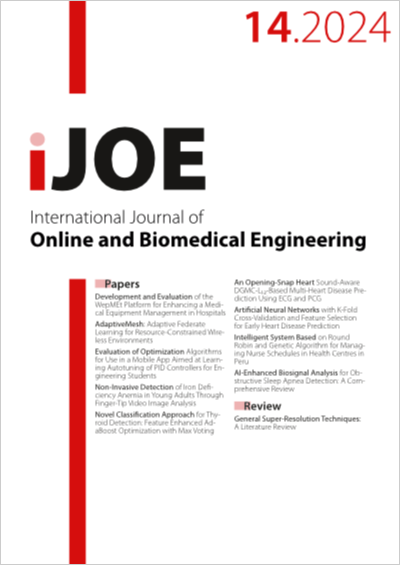AdaptiveMesh: Adaptive Federate Learning for Resource-Constrained Wireless Environments
DOI:
https://doi.org/10.3991/ijoe.v20i14.50559Keywords:
adaptive federated learning, embedded machine learning, wireless mesh networksAbstract
Federated learning (FL) presents a decentralized approach to model training, particularly beneficial in scenarios prioritizing data privacy, such as healthcare. This paper introduces AdaptiveMesh, an FL adaptive algorithm designed to optimize training efficiency in heterogeneous wireless environments. Through dynamic adjustment of training parameters based on client performance metrics, including central processing unit (CPU) utilization and accuracy trends, AdaptiveMesh aims to enhance model convergence and resource utilization. Experimental evaluations on heterogeneous client devices demonstrate the algorithm’s effectiveness in improving model accuracy, stability, and training efficiency. Results indicate a significant impact on CPU adaptation in preventing client overloading and mitigating overheating risks. Furthermore, the results of the one-way analysis of variance (ANOVA) and regression analysis highlight significant differences in CPU usage, accuracy, and epochs between devices with varying levels of hardware capabilities. These findings underscore the algorithm’s potential for practical deployment in real-world edge computing environments, addressing challenges posed by heterogeneous device capabilities and resource constraints.
Downloads
Published
How to Cite
Issue
Section
License
Copyright (c) 2024 Lamir Shkurti, Mennan Selimi

This work is licensed under a Creative Commons Attribution 4.0 International License.



